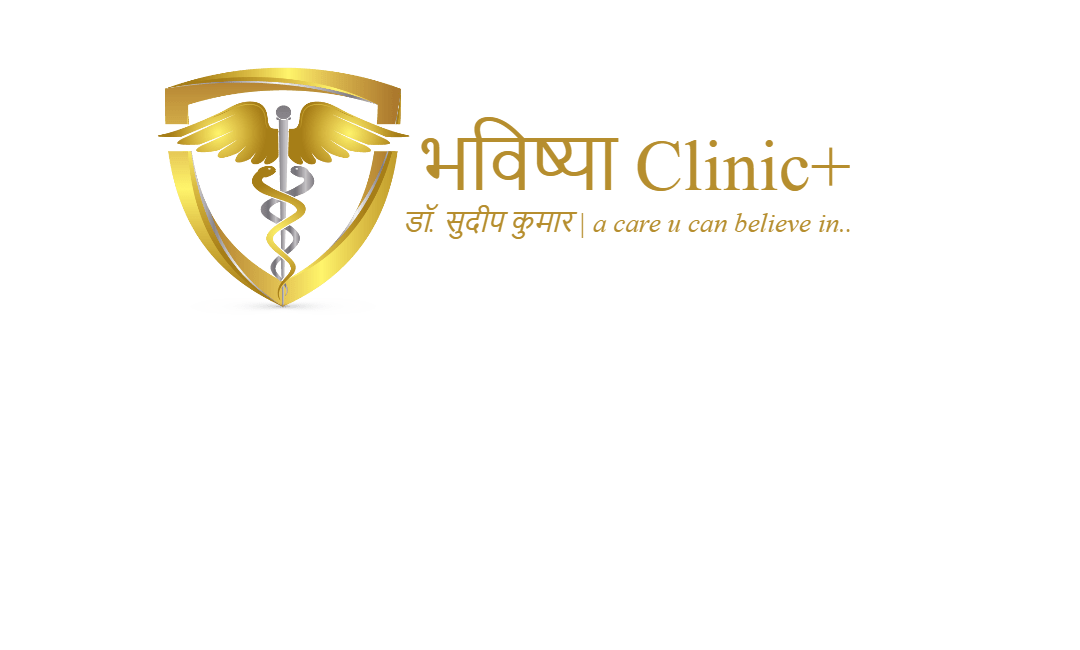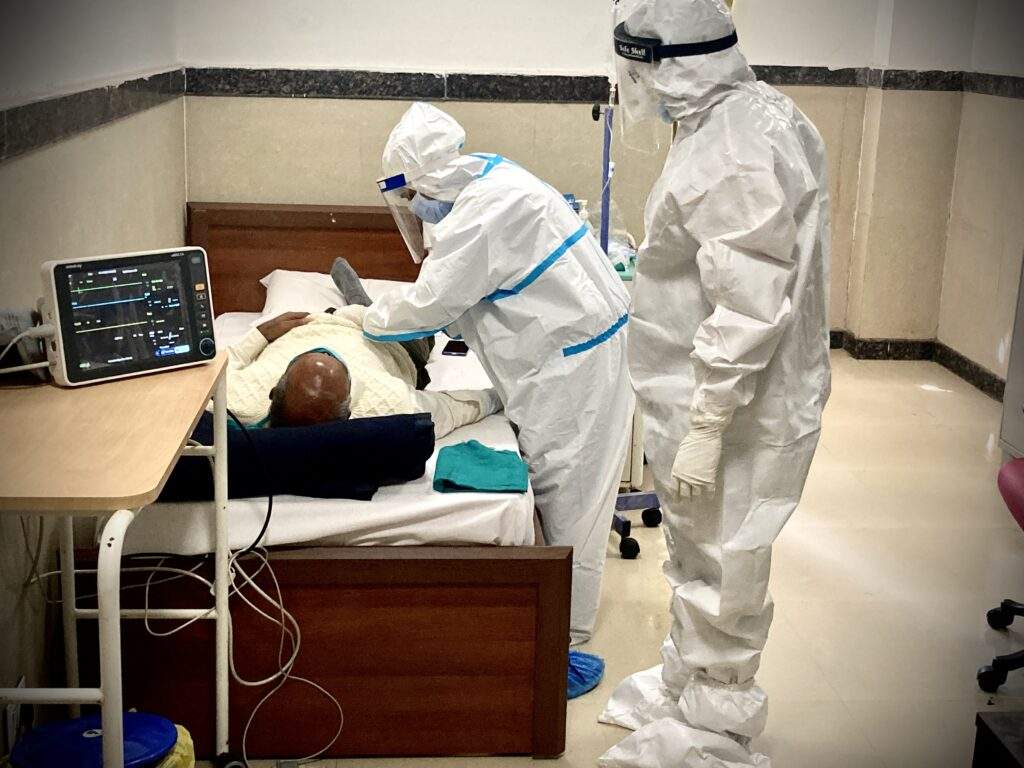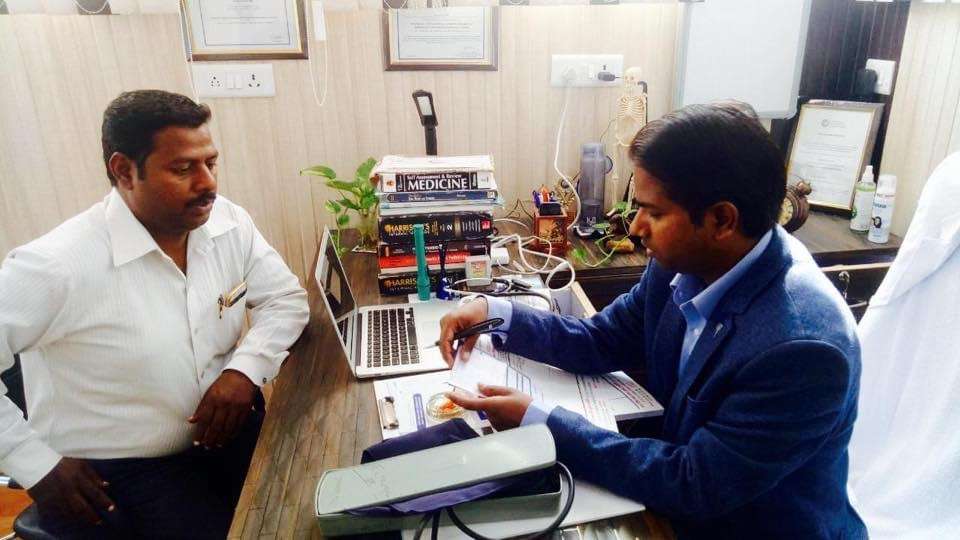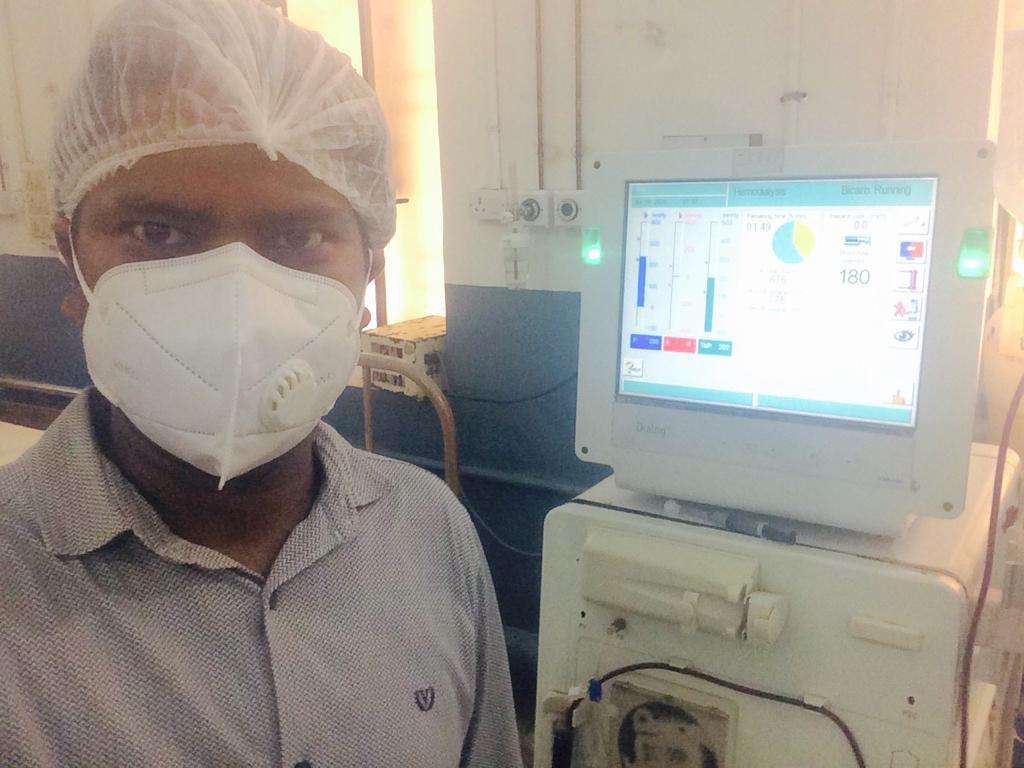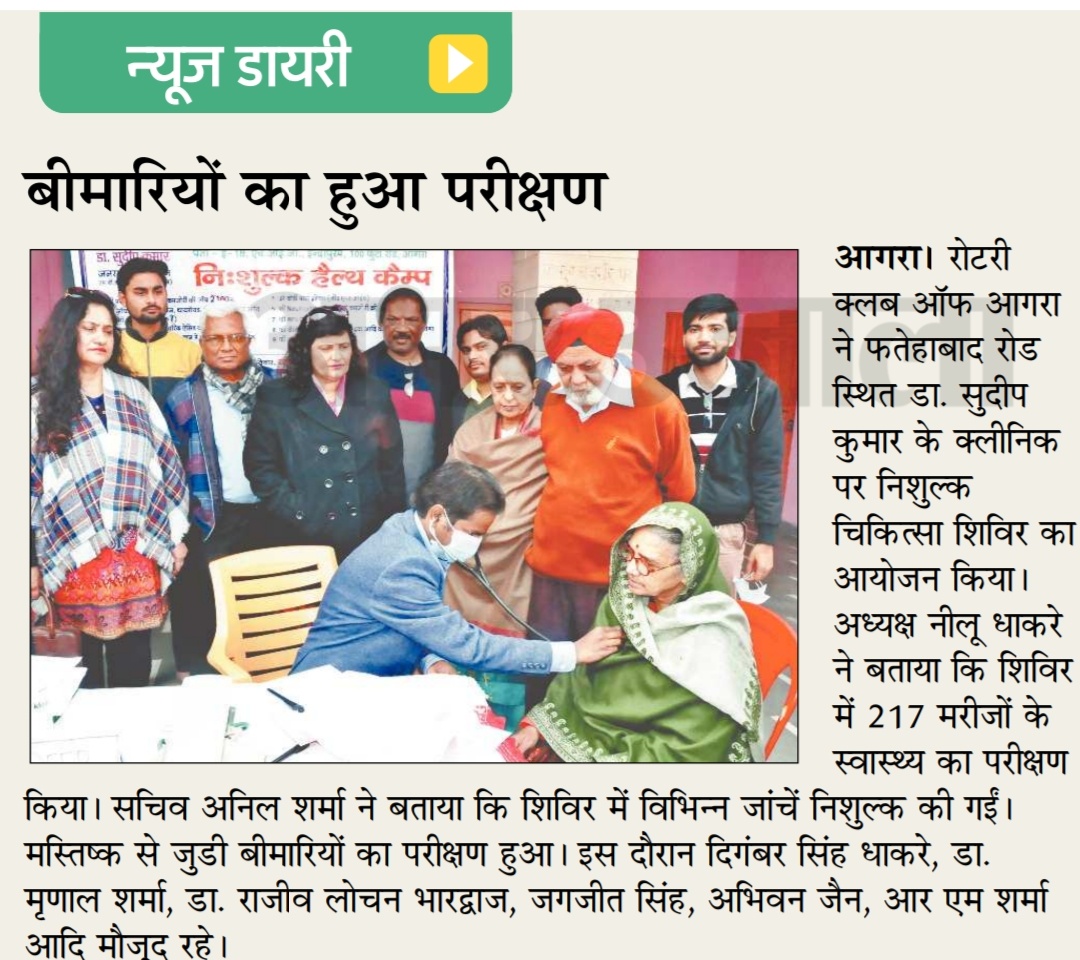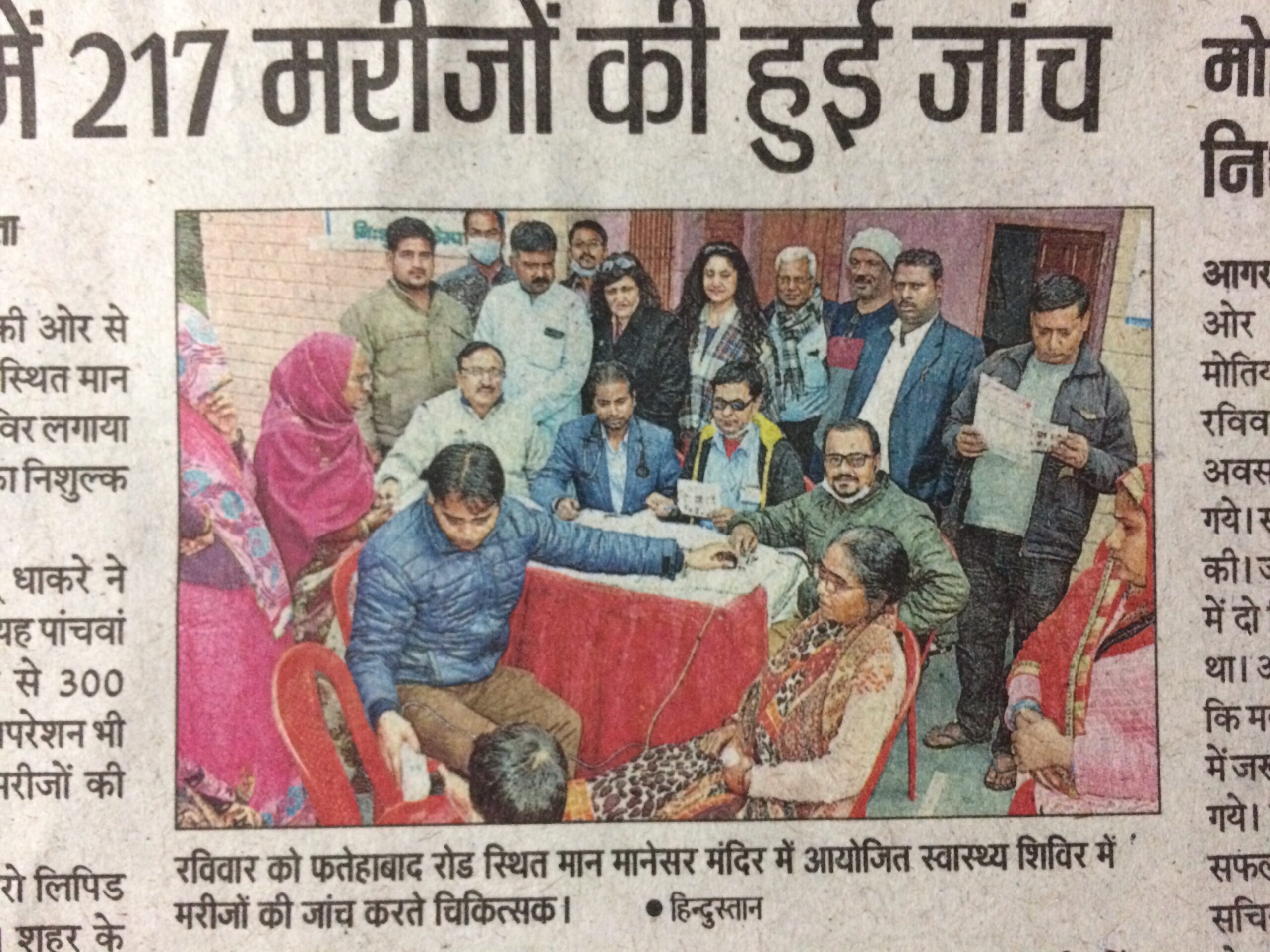




84e5b64d-dd54-44e1-997d-25ef6fccc52e

IMG-3216

Ahmdbd

clinic

12c403c3-2e9d-4726-80bb-98ae64b4dfbc







Dr. Sudeep Kumar at Bhavishya Clinic is committed to provide high quality affordable, accessible, comprehensible and curative healthcare services to the community in order to assure best outcome.
- ECG
- Nebulisation
- Blood Glucose Level
- BMI
- PFT/Spirometry
- Peak Flow Rate
- Bone marrow Density
- Immunisation
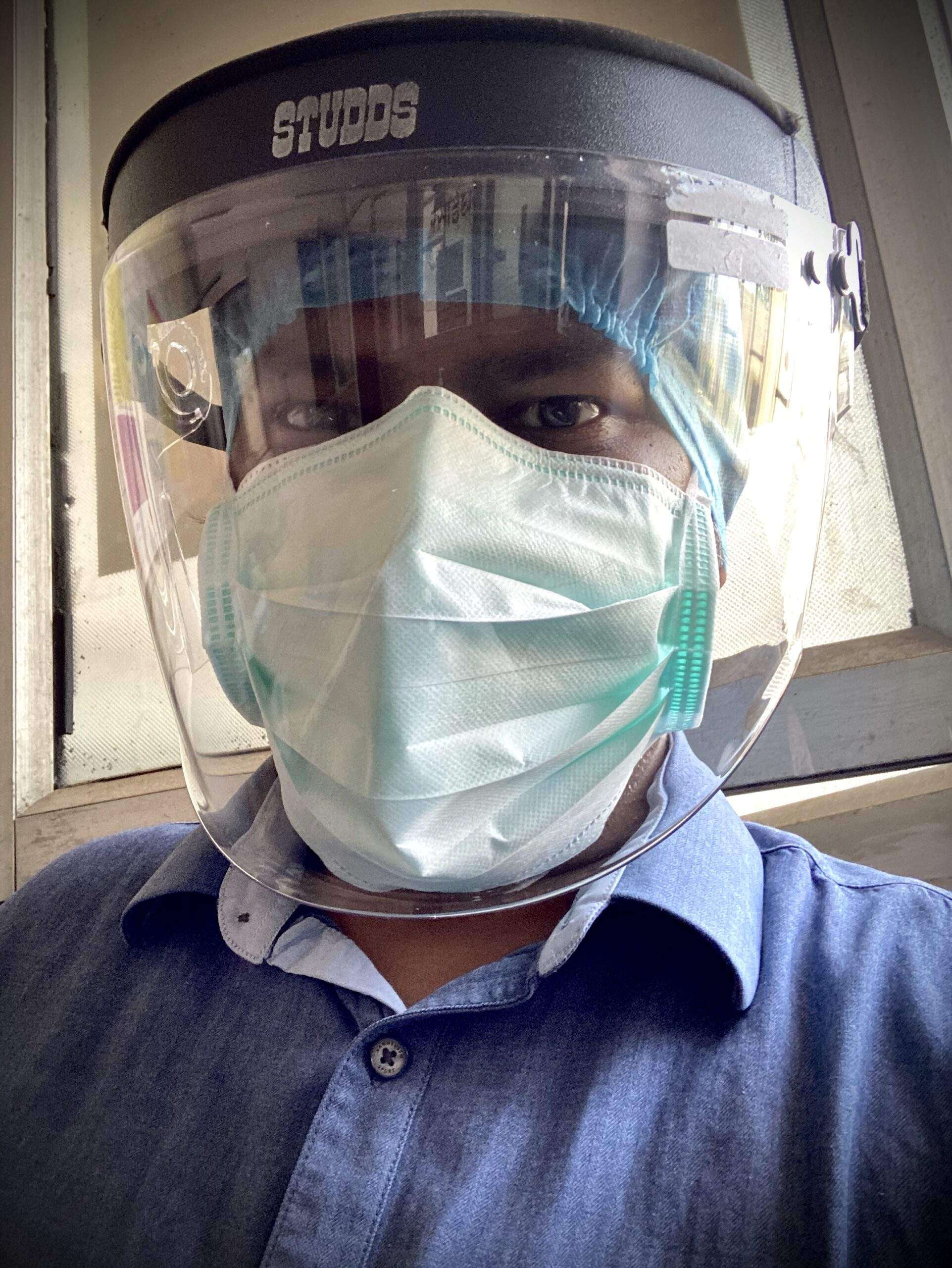
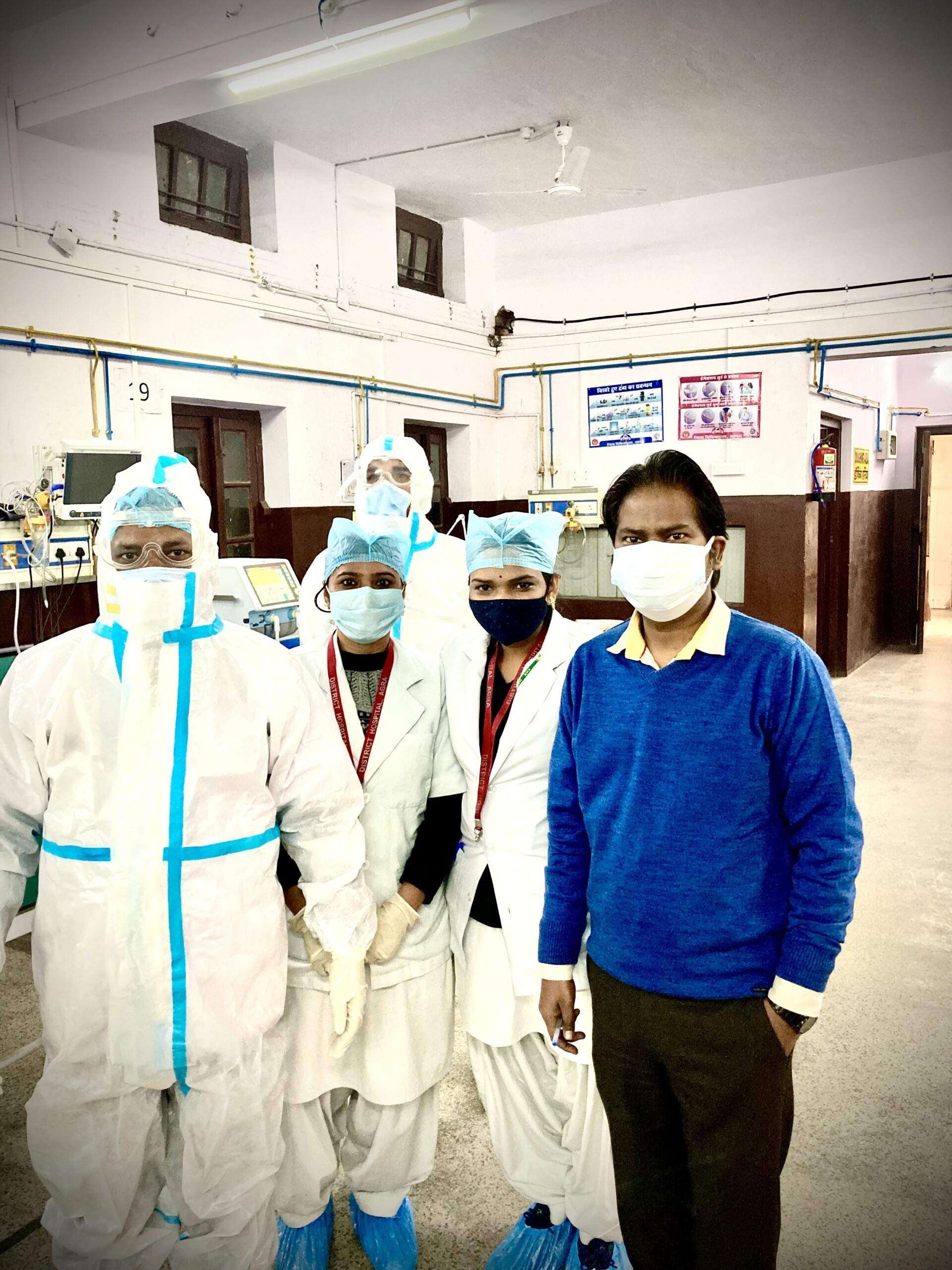
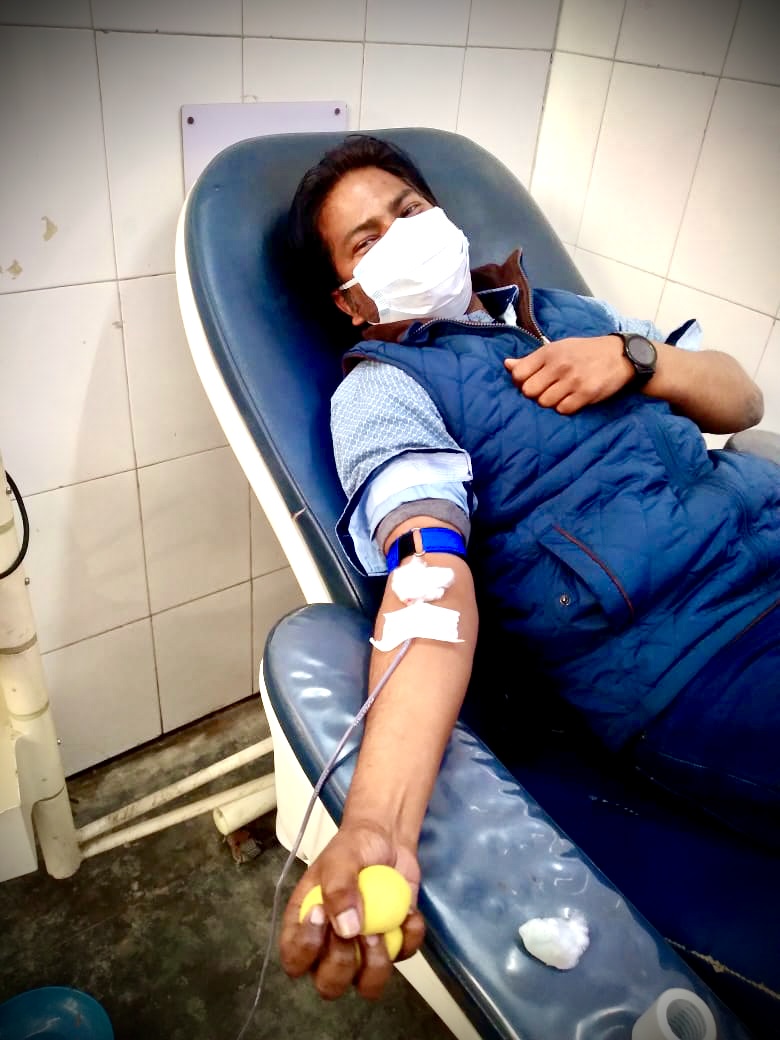
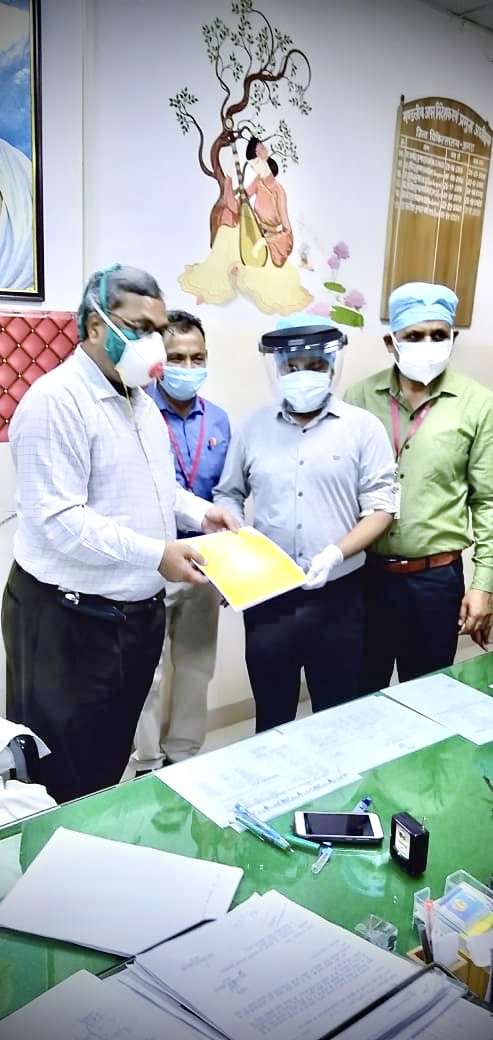
Frequently Asked Questions (FAQ)
Common cold and flu are both respiratory diseases. However, common cold is a milder problem than the flu. It is easy to treat cough, sneeze and nasal congestion but if you are suffering from flu symptoms then you can feel ill for a few days to months. It can also cause serious health problems like pneumonia. - Dr. Sudeep Kumar @Bhavishya Clinic+
Lifestyle changes to treat high blood pressure:
No matter what medications your doctor prescribes to treat your high blood pressure, you'll need to make lifestyle changes to lower your blood pressure.
• Eating a healthier diet with less salt. Fruits and vegetables are rich in certain antioxidants that prevent narrowing of blood vessels.
• Exercising regularly at least 40 minute.
• Quitting smoking
• Limiting the amount of alcohol you drink
• Maintaining a healthy weight or losing weight if you're overweight or obese
• Stress management: Continuous stress may lead to the activation of sympathetic nervous system and causes hypertension. - Dr. Sudeep Kumar @Bhavishya Clinic+
No. Antibiotics only work against infections caused by bacteria, fungi and certain parasites. They don't work against any infections caused by viruses. Viruses cause colds, the flu and most coughs and sore throats. - Dr. Sudeep Kumar @Bhavishya Clinic+
Headaches can be classified mainly into 4 types
• Migraine Headache – A common form of headache which occurs on one part of the head
• Tension Headache – Headache which occurs at the back of the head, temples, forehead, the feeling is as if a tight hat were in place.
• Hypnic headache – A rare headache that affects the age group of 40 – 80. It occurs only at night at a fixed time of the night lasting for 15 – 60 minutes.
• Cluster Headache – A headache which occurs several times a day but lasts for a short while. It is always one sided headache and is associated with symptoms such as stuffy nose, tearing and enlarged pupil. - - Dr. Sudeep Kumar @Bhavishya Clinic+
There are many ways of treating headaches. The first initiative to treat headaches would be by bringing a change in lifestyle. Proper sleep, clean surroundings, eating at the right time, exercising etc. would be one of the few things to do to reduce headaches. Other home remedies to follow can be Yoga, meditation, counselling (if needed). Proper nutritional diet and physical exercises also help treating headaches. - Dr. Sudeep Kumar @Bhavishya Clinic+
Chicken pox is a highly contagious disease and can make it very sick, so a person infected should ensure that he does not spread it to other people. Some points to keep in mind are.
• Stay away from work/school
• Stay away from people who are more prone to risk for eg. People with weaker immune system
• Stay clean at all times
• Get vaccinated as early as possible. - Dr. Sudeep Kumar @Bhavishya Clinic+
A minimum intake of 20-35 g of fiber is conducive for long-term good health .WHO Committee on chronic degenerative diseases recommended a daily intake of 30 g dietary fiber. An intake in excess of 60 g of fiber over a day can reduce the absorption of nutrients and may cause irritation in the bowel and also lead to diarrhoea. The intake of 40 g/ 2000 kcal may be rationalized in different groups based on recommended energy intake. - Dr. Sudeep Kumar @Bhavishya Clinic+
Diabetes is a metabolic disease where the blood sugar levels are high. If untreated, it leads to serious complications affecting major organs of the body.
Glucose, found in carbohydrates, is a major source of fuel. We need insulin, a hormone made by the pancreas, for appropriate utilization of glucose in the body. Any disturbance in the production or action of insulin leads toa rise in blood glucose.
Different types of diabetes are caused due to a complex interplay of genetic and environmental factors. - Dr. Sudeep Kumar @Bhavishya Clinic+
If one suffers from type 1 diabetes, the mainstay of therapy is insulin injection as discontinuation of insulin may result in life threatening diabetic emergencies like diabetic ketoacidosis. Till today’s date, there is very little that can be done to restart insulin production from pancreas in type 1 diabetes. The main focus should be on timely administration of correct dosage of insulin and periodic health check up.
Those with type 2 diabetes should adopt a low-sugar and low fat diet; maintain a regular exercise regimen, take timely medicines and schedule timely follow ups with treating doctor. - Dr. Sudeep Kumar @Bhavishya Clinic+
Diabetes, if unchecked, leads to complications that involve multiple organs.
Increased risk of coronary artery disease, heart attacks, strokes & atherosclerosis (narrowing of arteries)
Eye damage – Retinopathy, cataracts, glaucoma, blindness.
Kidney damage, which can lead to end-stage kidney disease or renal failure.
Nerve damage – tingling numbness, pain or burning sensation in limbs
Erectile Dysfunction
Diabetic foot disease that may lead to gangrene, resulting
Increased risk of bacterial and fungal skin infections
Poor wound healing in amputation. - Dr. Sudeep Kumar @Bhavishya Clinic+
Yes, as genetic factors are responsible for development of diabetes, those with parents or siblings with diabetes are more likely to get diabetes. - Dr. Sudeep Kumar @Bhavishya Clinic+
Yes, diet and exercise can help prevent diabetes. There is a stage known as pre-diabetes, where chance of progression to diabetes increases. This stage is reversible. It is crucial to control diet and exercise regularly in order to prevent development of diabetes in future. Maintaining a healthy lifestyle is the first line of defense against diabetes. - Dr. Sudeep Kumar @Bhavishya Clinic+
PFT measures how much air you can breathe in and out and how fast you can do it and how well your lungs are working to deliver oxygen to your blood. PFT is a painless test and a technician will ask you to take a deep breath and then blow as hard as you can into a tube connected to PFT machine.
PFT is the most important test for the diagnosis and management of COPD. PFT is similar to ECG of the lungs. - Dr. Sudeep Kumar @Bhavishya Clinic+
The kidney is one of the essential organs of the body. It is linked to pathologies of other organs and can be damaged irreversibly, which may result in dialysis or transplant.
Thus, there are certain precautions one can take:
Quit smoking/recreational drugs
A balanced diet: Low salt, low carb, balanced protein, balanced acidity, calcium-rich.
Lose weight in a safe manner, avoid diet pills/crash diets
Drink copious amounts of water, especially in the summers.
Read food labels of all food to know the sodium content - Dr. Sudeep Kumar @Bhavishya Clinic+
"Geriatric syndrome" is a term that is often used to refer to common health conditions in older adults that do not fit into distinct organ-based disease categories and often have multifactorial causes. The list includes conditions such as cognitive impairment, delirium, incontinence, malnutrition, falls, gait disorders, pressure ulcers, sleep disorders, sensory deficits, fatigue, and dizziness. These conditions are common in older adults, and they may have a major impact on quality of life and disability.
Geriatric syndromes can best be identified by a geriatric assessment. - Dr. Sudeep Kumar @Bhavishya Clinic+
Comprehensive geriatric assessment (CGA) is defined as a multidisciplinary diagnostic and treatment process that identifies medical, psychosocial, and functional limitations of a frail older person in order to develop a coordinated plan to maximize overall health with aging.
It requires evaluation of multiple issues, including physical, cognitive, affective, social, financial, environmental, and spiritual components that influence an older adult's health. - Dr. Sudeep Kumar @Bhavishya Clinic+
Location
E-18 HIG Indrapuram
Shamshabad Road
Contact Us
Phone : 8791114052
Email : sukum06@gmail.com
Our Hours
MON-FRI 05:00 – 08:00 PM
SAT-SUN: Closed
Follow Us
